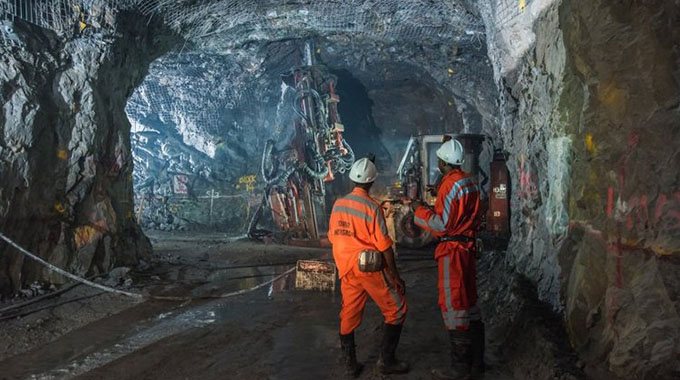Zimbabwe high up on global Covid-19 management rankings

Nqobile Tshili
Bulawayo Bureau
AN international think tank has named Zimbabwe among countries that have fared well in Covid-19 management, beating many first world nations with better health care systems and resources.
Lowy Institute ranked Zimbabwe 38 out of 100 countries in its Covid-19 response.
Founded in April 2003, the Lowy Institute is an independent, nonpartisan international policy think tank located in Sydney, Australia. It is Australia’s leading think tank, providing high-quality research and distinctive perspectives on the international trends shaping the world.
Zimbabwe averaged 54,9 points while New Zealand was ranked first after scoring 94,4.Zimbabwe bested the US, ranked 94 with 17,3 and UK at 66 with 37,5 points.
The top five countries were New Zealand, Vietnam, Thailand and Cyprus and from the bottom of the ladder, the worst five were Brazil, Mexico, Colombia, Iran and the US.
Covid-19 has affected 190 countries globally and the Lowy Institute said it only assessed countries that have been transparent in their management of the virus.
“This interactive explores how almost 100 countries with publicly available and comparable data on the virus have managed the pandemic to date following their hundredth confirmed cases of Covid-19,” read a statement on the Lowy website.
“Some countries have managed the pandemic better than others, but most countries outcompeted each other by degrees of underperformance. The severity of the pandemic in any country has also changed significantly over time, with infections surging again in many places that had apparent success in suppressing initial outbreaks.”
Lowy Institute said even countries that were doing well during the first wave of Covid-19 seem to be struggling to handle the second wave.
When Covid-19 was first recorded last year, Government imposed several prevention measures, including a national lockdown, making it mandatory for the population to wear face masks, sanitisation of hands and social distancing.
Experts have said the strict measures have played a key role in the management of Covid-19 in Zimbabwe, considering that the country has relatively limited resources.
Mpilo Central Hospital acting chief executive officer Professor Solwayo Ngwenya said the country’s early Covid-19 prevention response is one of the measures that have led the country to do well.
He said knowledge about the limited resources in hospitals also influenced the Government’s decisions to prevent infections.
“In Zimbabwe we saw that our resources are very limited so we made a lot of noise and the Government responded very well, especially during the first lockdown. It was very crucial and clamped down on the infections very hard.
During the first 21 days we only recorded three deaths or so but other countries waited until their hospitals got overwhelmed,” said Prof Ngwenya.
“So, the campaigns that were conducted did well for the country and the population in the first 21 days complied with regulations. With the second wave, the Government also responded by locking down, so this is partly due to our literacy as people have been following information that is being distributed. Secondly, the home remedies seem to have done well for some people.”
He encouraged citizens and the Government to continue following expert advice for the country to suppress the spread of the deadly pandemic.
“There should also be widespread campaigns targeting the rural areas because the virus hasn’t gone away. The virus might appear to be going away but suddenly comes back much stronger so we need to maintain our vigilance to make sure that every Zimbabwean understands the problem that we are facing,” he said.
Bulawayo City Council health services director Dr Edwin Sibanda said it was difficult for him to make a comment on Lowy Institute’s findings as he is not familiar with how they carried their study.
Dr Sibanda said the country has, however, been very transparent in its Covid-19 communication describing virus management as having a series of components, some that need addressing.
“The management of the critical patients is the most expensive and difficult one. The country Zimbabwe may not have done well on that part. Testing has not been done as widely as we would have wished. But we have tried to test those who would have exhibited symptoms. However, the hospital management is still a challenge. The number of hospital beds for critical patients, we have done badly on that,” said Dr Sibanda. – @nqotshili









Comments